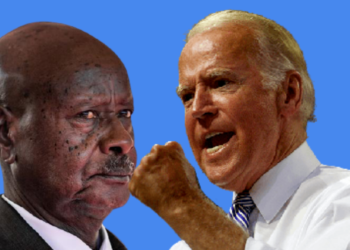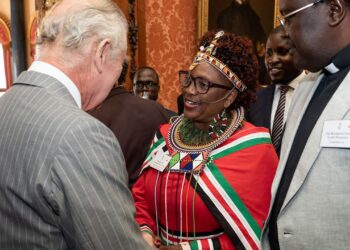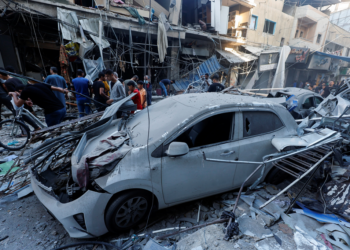Russia’s government resigned in a shock announcement yesterday after President Vladimir Putin proposed a shake-up of the constitution.
The announcement by Putin’s long-time ally Dmitry Medvedev came after the president used his annual state of the nation address to call for a nationwide vote on a package of constitutional reforms.
The resignation raises deep questions about the long-term shape of Russia’s political system and the future of Putin, who is due to step down at the end of his fourth Kremlin term in 2024.
A few hours after the address, Medvedev and Putin appeared alongside each other on national television to say the government was stepping down.
‘‘We should provide the president with the possibility to take all the necessary measures’’ to carry out the changes, Medvedev said.
‘‘All further decisions will be taken by the president.’’ Putin thanked Medvedev who also served as president for four years from 2008.’’
The changes Putin proposed would transfer more authority to parliament, including the power to choose the prime minister and senior cabinet members, instead of the president as it is under the current system.
‘‘Today in our society there is a clear demand for change,’’ Putin said in his address. ‘‘People want development, they are striving to move forward in their careers, in their education, in becoming prosperous.’’
The package of reforms would be put to a national vote, he said, without specifying when.
Leader for life
Speculation has swirled about changes to Russia’s political system that would allow Putin to stay on after 2024.
Some have suggested he could remain as a prime minister or in a powerful behind-the-scenes role.
Leading Kremlin critic Alexei Navalny said he expected any referendum to be ‘‘fraudulent crap’’ and that Putin’s goal remained to be ‘‘sole leader for life’’.
Russia last conducted a referendum in 1993 when it adopted the constitution under Putin’s predecessor Boris Yeltsin.
Putin has held a firm grip on the country since coming to power with Yeltsin’s resignation in 1999. Re-elected to a six-year term in 2018, Putin has seen his approval ratings fall to some of their lowest levels, though still far above those of most Western leaders.
Recent polls put Putin’s rating at 68-70%, up a few points from a year ago but down from a high of more than 80% at the time of his last election.
Hit by Western sanctions over the 2014 annexation of Crimea, Russia’s economy has stagnated and most Russians have seen their disposable income fall.
Frustration boiled over last summer, with thousands taking to the streets of Moscow, to protest the exclusion of opposition candidates from local elections, leading to wide-scale arrests and long jail terms for several demonstrators































































